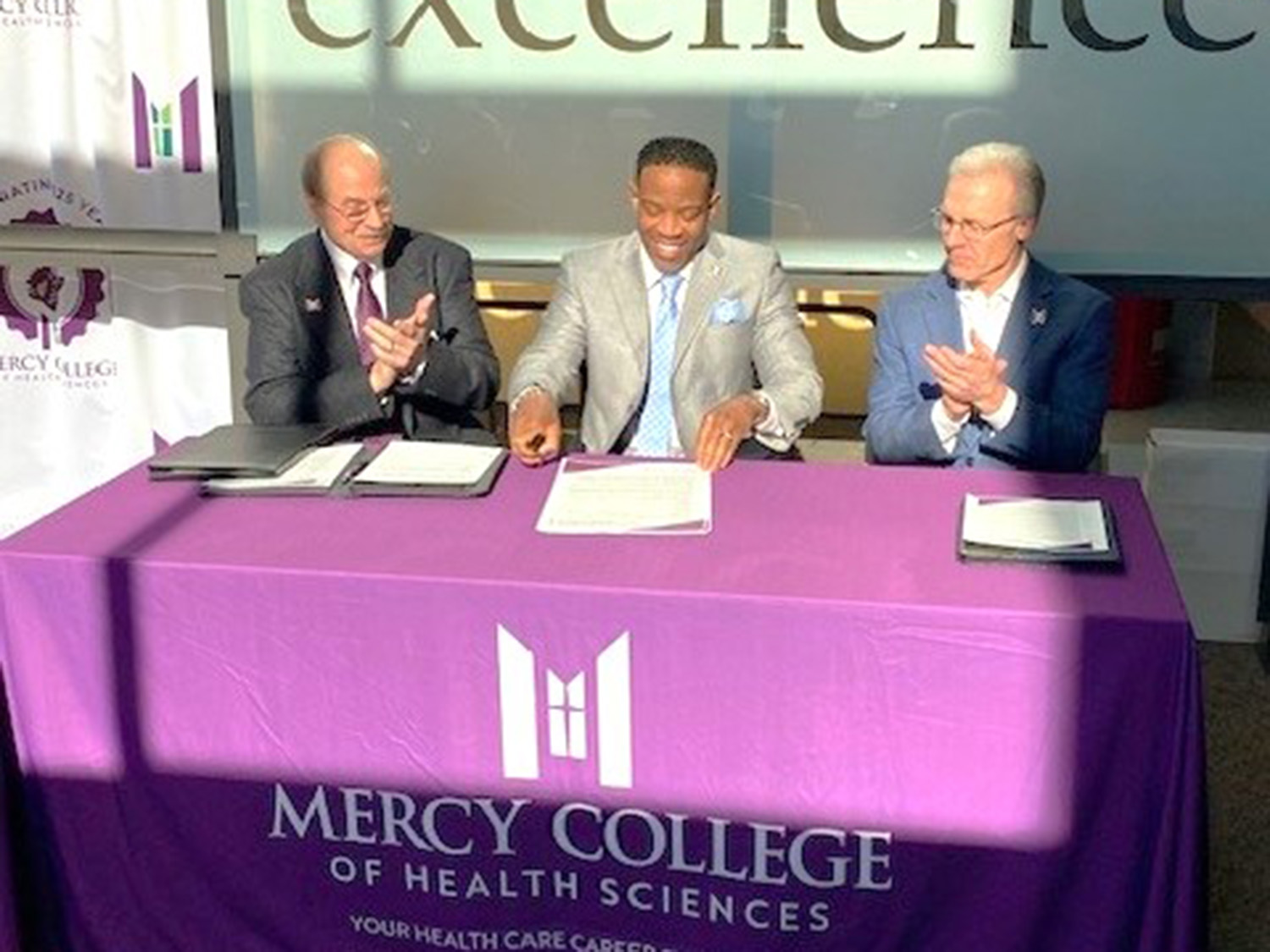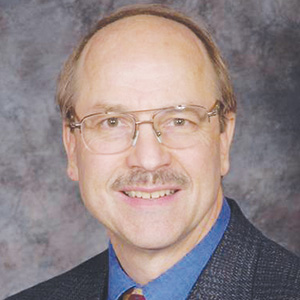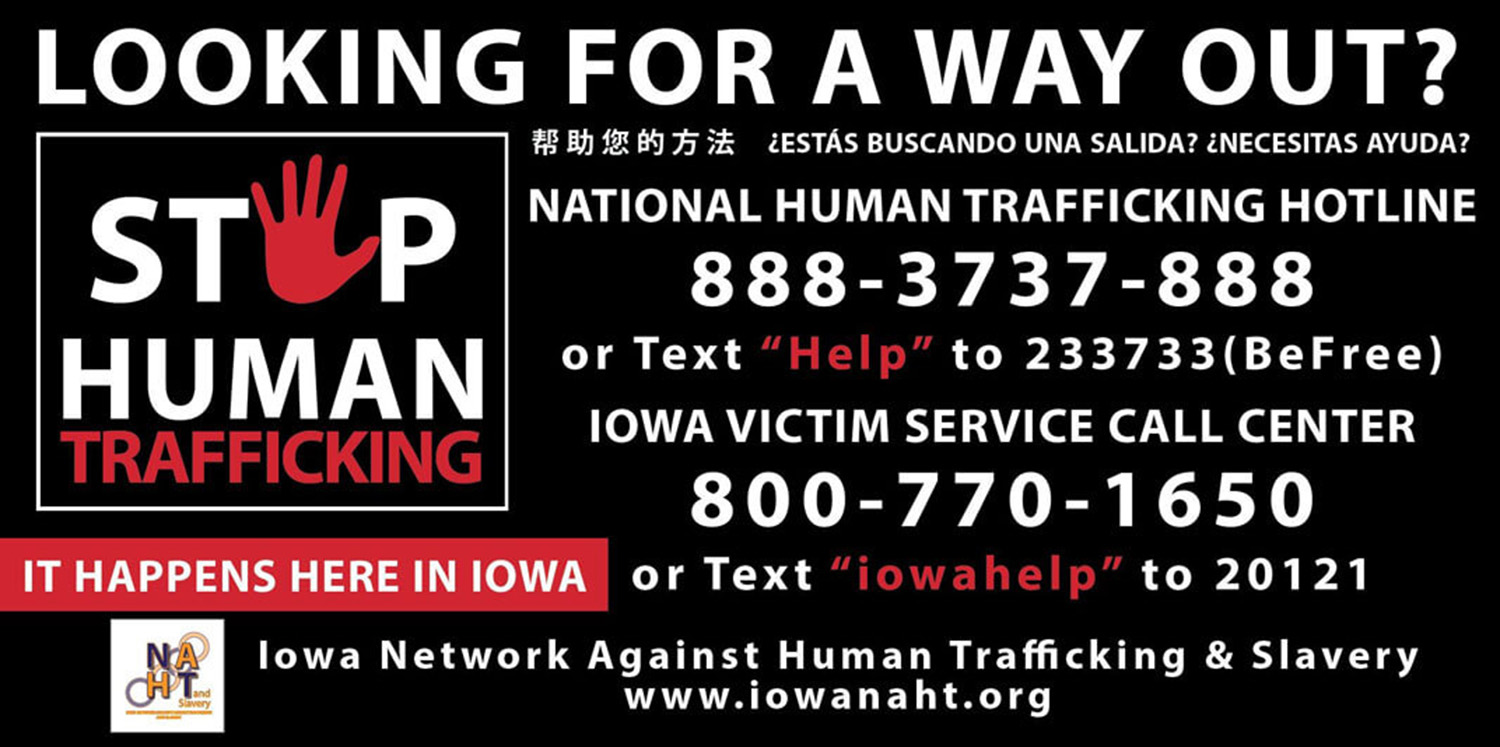

Joseph Moravec has a vivid memory from when he added a discussion of human trafficking to the curriculum of one of his courses at Mercy College of Health Sciences in 2016.
"When I first covered it, that first year, I had one of my students come up to me at break and say, 'I'm being trafficked,'" recalled Moravec, a professor of philosophy and religious studies at the Catholic college in Des Moines, Iowa.
That class session included a visit from a trafficking survivor who shared her story. Moravec said the nursing student who approached him afterward had not given him any reason to suspect that she was being exploited in the sex trade.
He didn't ask the student for details of what she was enduring, but he did take action. "I was able to get her some help, and she was able to get out of the life," he said. The student also completed her degree.
Since becoming aware of the scope of trafficking, Moravec has launched a personal crusade against it. He not only covers it in his courses at Mercy College, he has joined organizations and served on boards focused on trafficking awareness and eradication.
He considers his efforts to be closely aligned with his faith. "This goes right to the core of what it means to be Catholic," he said. "It goes right to the core of who we are and are called to be and do as followers of Christ."
Hidden problem
The National Human Trafficking Hotline reports that in 2023 there were 9,619 trafficking
cases involving 16,999 victims identified nationwide. Most of those cases involved sex trafficking and the others labor exploitation.
The hotline says fewer than 1% of trafficking cases are from Iowa. That his state might be a minor player in human trafficking compared to others doesn't diminish Moravec's fervor. He believes trafficking is a wider problem than the public knows and statistics indicate. He calls it a problem "hidden in plain sight" because it operates under the radar but in public spaces.

In Iowa, he said two factors in particular underlie trafficking. One is that the state is where Interstate 35, which links the Canadian and Mexican borders, meets Interstate 80, which connects the East and West coasts. The interstates and the motels and truck stops along them are known to draw traffickers, says the Iowa Department of Public Safety. The other factor is that Iowa, being largely agricultural, has a high need for cheap labor, such as from migrant workers. Workers rights' groups such as the International Labor Organization say migrants are much more likely to be exploited than other workers.
Spreading awareness
Moravec said his awareness of human trafficking developed as he created lectures and discussion topics for his classes, which include Critical Thinking, Comparative Christian Traditions and Servant Leadership.
He said his courses were the first at Mercy College to cover trafficking and the need for trauma-informed care for survivors. The college, which has about 850 students, is an affiliate of Trinity Health.
At Moravec's urging, the president of Mercy College for the past seven years has signed a proclamation every January to mark National Human Trafficking Prevention Month.
"That's something every Catholic college should do," Moravec said. "Every Catholic college should have an annual proclamation. That's the least we can do."
Mercy College's proclamation signing is paired with trafficking awareness activities, such as fireside chats and panel discussions, which Moravec organizes.
Dr. Adreain Henry, president of Mercy College, said the institution "places human dignity at the heart of our education." Its Proclamation Against Human Trafficking and Slavery "raises awareness of this ongoing atrocity and ensures that future health care workers are equipped to recognize and respond to human trafficking in our communities," Henry said in a written statement.
He added: "We are grateful for Dr. Moravec's work at the state and national level to bring meaningful change and awareness to these crimes against human dignity and freedom."
Teaching and training
Moravec went from teaching about human trafficking to joining initiatives to halt it. From 2018-2022, he served on the board of the Iowa Network Against Human Trafficking and Slavery. The volunteer organization is devoted to ending trafficking by building awareness and advocating for prevention, intervention, rescue and recovery services.
Moravec next got involved with Iowa Businesses Against Trafficking. That initiative was launched three years ago by the secretary of state and encourages businesses to join the fight to end human trafficking. Moravec led a committee that built up a cache of educational and training resources that are available on the initiative's website.

His efforts included being an executive producer of a training video for workers in the lodging industry called "No Room For Trafficking: How to stop trafficking in Iowa hotels." The video is part of the trafficking prevention training required for hotel and motel workers by law in Iowa since 2022. Thousands of workers have undergone that training.
Last year, Moravec worked with a nonprofit called Chains Interrupted to produce three new videos that Iowa Businesses Against Trafficking will make available for training.
Patrick Waymire, assistant director of the Division of Intelligence and Fusion Center at the Iowa Department of Public Safety, has seen Moravec's commitment in action. Part of Waymire's job is to oversee the Iowa Office to Combat Human Trafficking.
He said that office provides local and national training to the public, law enforcement, prosecutors and victim service organizations. "A lot of time during those trainings all those different groups are together," he said. "The reason for that is to build those relationships needed and to share expertise and some of that knowledge about what's going on and how to dismantle some of these organizations."
Waymire credits Moravec with being "a great partner" in anti-trafficking efforts across the state. "Joe has brought different organizations together to help amplify the efforts," he said. "I think that's his greatest asset: how he relates to other people."
Give something
The 900-plus businesses that are part of Iowa Businesses Against Trafficking have committed "to learn something and do something" in the quest to end trafficking. Moravec would like to see another piece added to that
commitment, "give something," because anti-trafficking groups need monetary support. "When you give, it's called sacrifice," he noted. "It's really saying that you're willing to give up something."
To that end, Moravec has persuaded dealerships and an insurance company to donate four cars to aid investigators and rescuers from anti-trafficking organizations in their work.
He also has helped direct funds to nonprofits that combat trafficking and aid survivors through the Community Foundation for Inspired Giving. He is president of the foundation's board and co-founder of one of its missions, Stop Trafficking Now Trafficking Now. Both entities issue grants to support the work of charitable organizations.
One of the organizations the foundation has supported is Street Grace, which works to end the sexual exploitation of children. One of Street Grace's tactics is cyber patrols that use artificial intelligence to identify sex trade customers online. Volunteers then confront and try to deter them.
Moravec said stopping buyers saves not only victims, but the expenses related to providing trauma care. "It's a grace. It's not shaming. It's not penalizing," he said. "It's 'Hello. Are you really thinking soundly? Are you thinking correctly?' You're interrupting and helping them."
'Bold response'
Moravec hopes to see more initiatives such as Iowa Businesses Against Trafficking across the country — so far, only a few states have such programs. He also wants to see businesses and other entities with financial
resources put more of them behind anti-trafficking efforts.
He thinks joining organizations and watching videos is not enough. "It's a wimpy response," he said. "We've got to have a bold response if we're going to defeat this enemy who's doing bold evil in our world."
